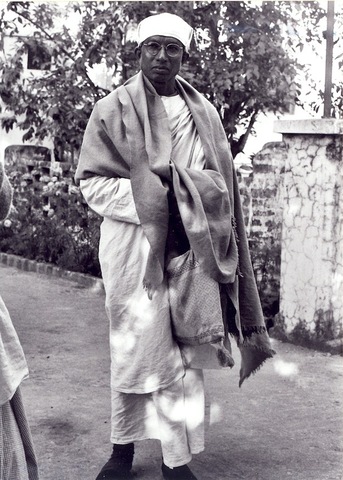
This past Monday I had the pleasant experience of engaging in a conversation about Munindra with Paul Swanson for his podcast "Contemplify." I appreciate every opportunity to share what I can about Munindra's life and teachings. This occasion was especially welcome since Paul is the kind of interviewer authors are so fond of--easy to speak with because they're both interested and prepared. I've been quite fortunate over many years to meet with people who take their work as interviewer or reviewer seriously. But I also can recall a couple of interviews about an earlier book. Not only did I provide the answers, I also had to come up with the questions because the person had not bothered to read what I'd written.
It was clear from the beginning that Paul was moved by Munindra and what he still offers--even though he's no longer with us--to anyone of whatever religious background. It never mattered to Munindra what spiritual path people followed. They didn't have to be a practitioner of Dharma, for he taught anyone who was willing to listen. In a similar way, Paul, who is an educator at the Center for Action and Contemplation, supporting the ecumenical ministry of Richard Rohr, OFM, readily "got" Munindra's essential wisdom.
Part of what made Munindra's teaching so universal was his nonsectarianism. He never said that Buddhism had a monopoly on such qualities as loving kindness, compassion, patience, and so on. He made the ordinary extraordinary. A simple gesture of generosity took on a deeper meaning with a greater impact than one might imagine. By embodying those qualities, he taught others how they, too, could embody them in their daily life.
Every time I have a chance to talk with someone about Munindra or reread sections of Living This Life Fully: Stories and Teachings of Munindra, I am reminded yet again of what I can do, what any of us can do, to transform how we live and how we interact with others. Yes, on a technological level, things have changed dramatically from the world that Munindra grew up and lived in. However, the simple truths he espoused have not changed. They're as relevant today as they were when the Buddha first shared them 2,600 years ago.
Click to listen to the interview with Paul. Read More